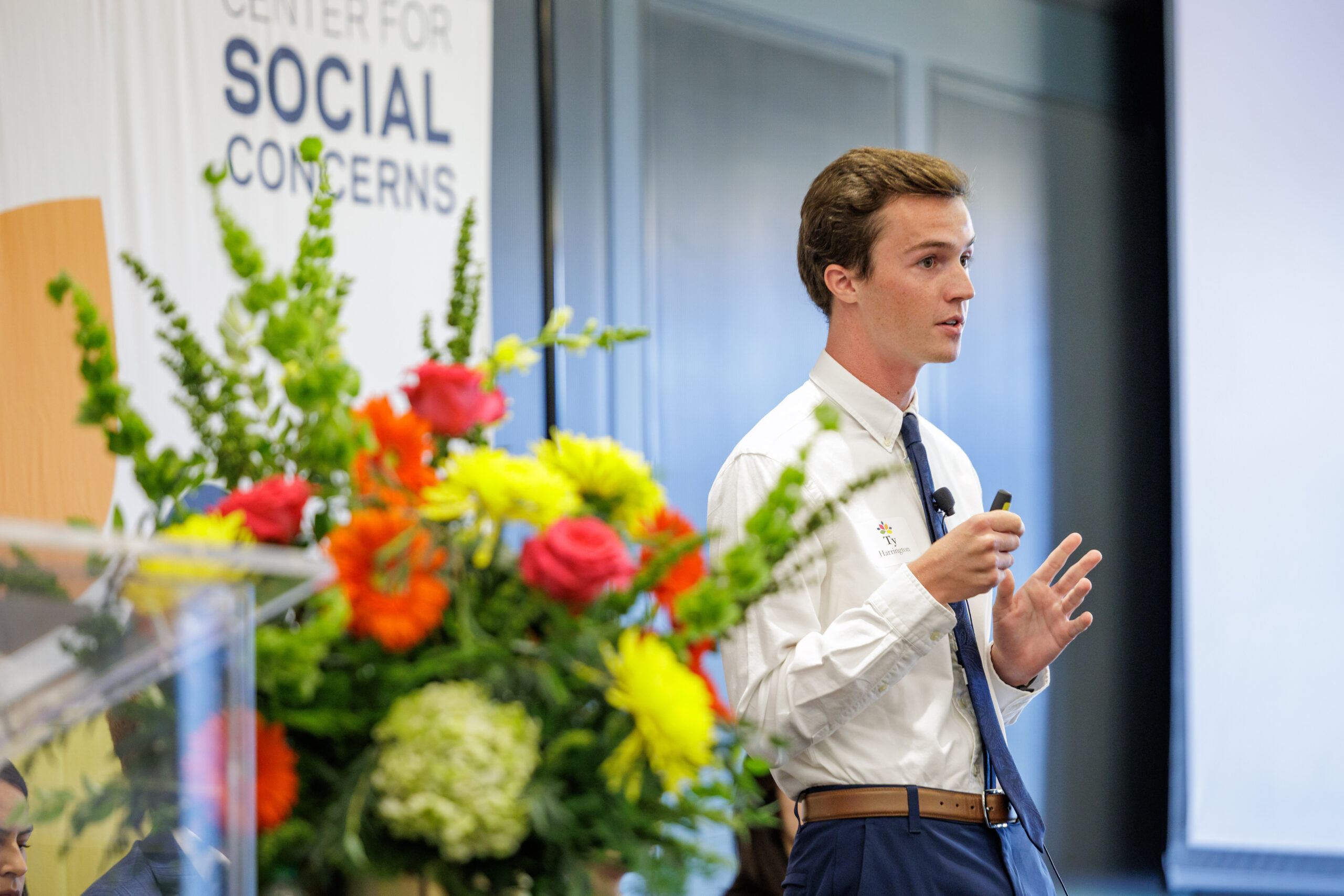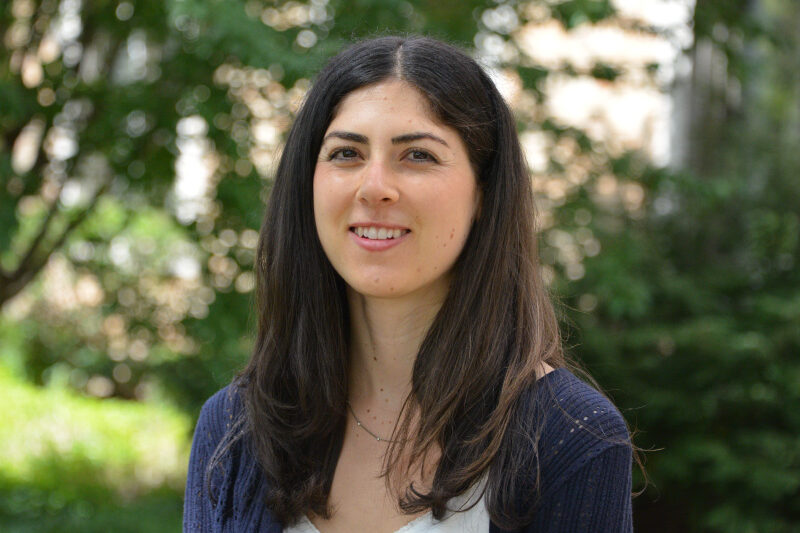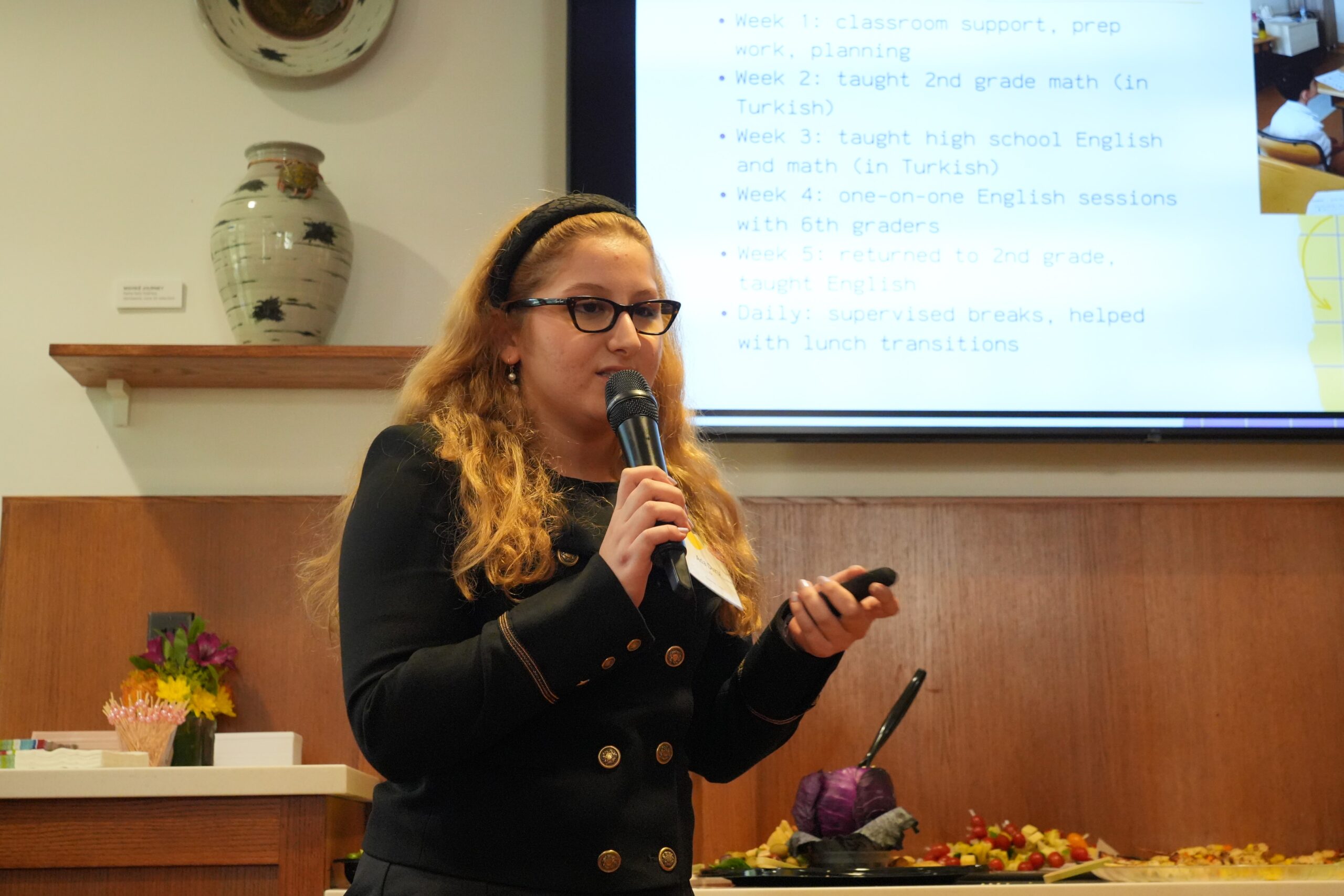Professor Neeta Verma brings art to youth in need of healing, self-discovery
November 22, 2023
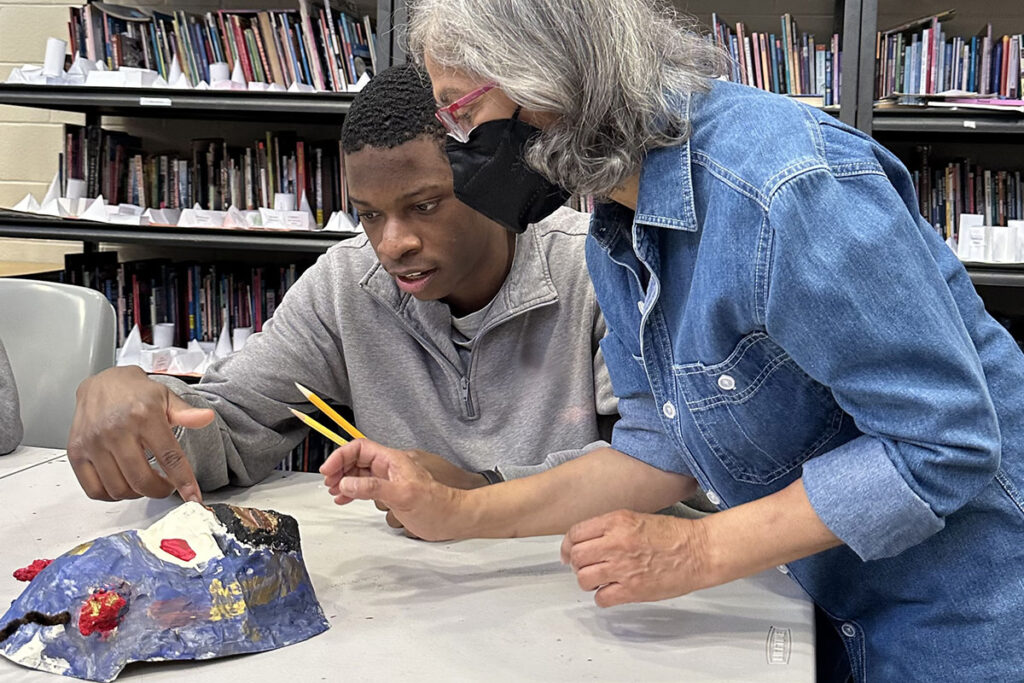
“At first, I didn’t know what to do with it,” the 17-year-old student admitted, pointing at his colorful papier-mâché mask on display in the South Bend Museum of Art’s Weikamp Gallery.
“I didn’t even know I could do it,” he said, “and now I think maybe I can make something even better.”
The student is one of 24 young men from DePaul Academy, a residential school within the St. Joseph County Juvenile Justice Center, who created masks that were displayed at the art museum this fall in an exhibit titled “Audacious Narratives / Enduring Voices.”
The exhibit was the culmination of a series of weekly workshops that Neeta Verma, associate professor of visual communication design at Notre Dame, ran at DePaul Academy from February 2022 to July 2023 with support from the Institute for Social Concerns, the Jesse Ball DuPont Fund, the Community Foundation of St. Joseph County, and the City of South Bend.
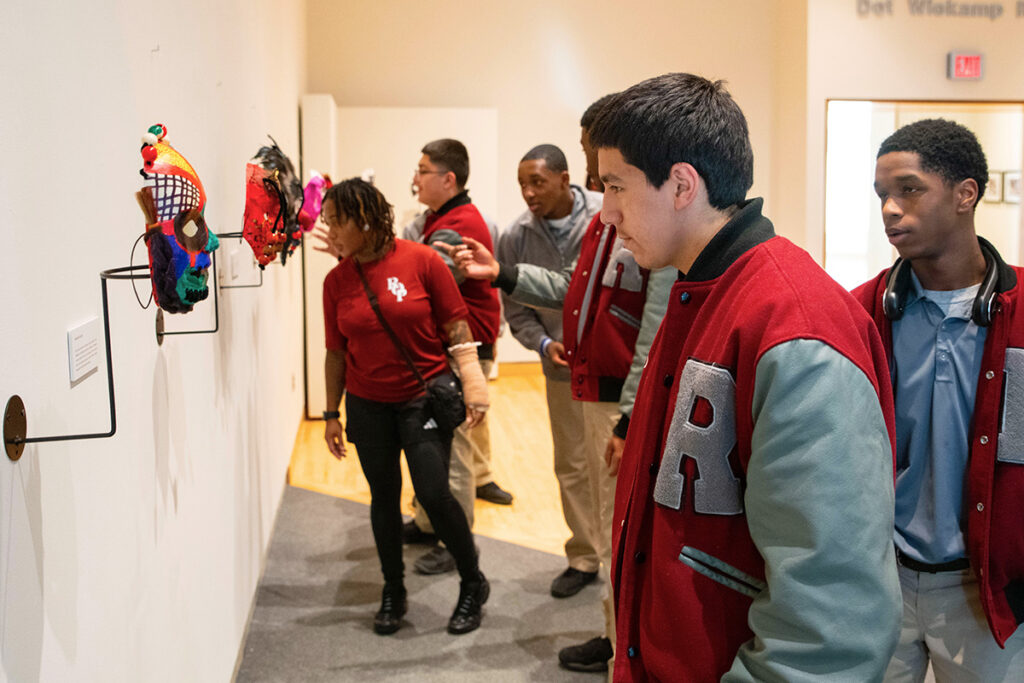
Verma’s research explores the use of design as a tool for social equity and justice. Her work has focused on systemic social issues, in South Bend and around the world, examined through the lens of power and privilege. She is a faculty fellow of the Institute for Social Concerns, which connected her with DePaul Academy for this project.
Her goal with the 18-month project at DePaul Academy was to demonstrate how design interventions can help people heal, dream, and learn about themselves, especially when they have experienced trauma. All of the DePaul students are at the school because of adversity that has happened in their lives.
“One of the interventions I’m trying to introduce here is the idea of how art and design help you create narratives,” Verma said. “The empowerment comes when their voices are being encouraged, their narratives are being encouraged, their identities are being encouraged. The process in each of these workshops was to ensure that their voices were coming through.”
The two-hour workshops, held each Saturday morning at DePaul Academy, covered a variety of media, including painting, drawing, collage, music composition, poster design, and digital design, all of which explored ideas of culture and identity. The workshops were optional for the students, but Verma said she had 100% attendance and 100% engagement.
The students’ bond with Verma was clear during a reception at the South Bend Museum of Art on November 3. One young man after another recounted the encouragement and attention she had given them during the workshops.
“Miss Neeta encouraged me to be creative. She was boosting me up,” one student said. “I just learned that things can come out good if you put your time and effort into it. I can do whatever I put my mind to as long as I got somebody boosting me.”
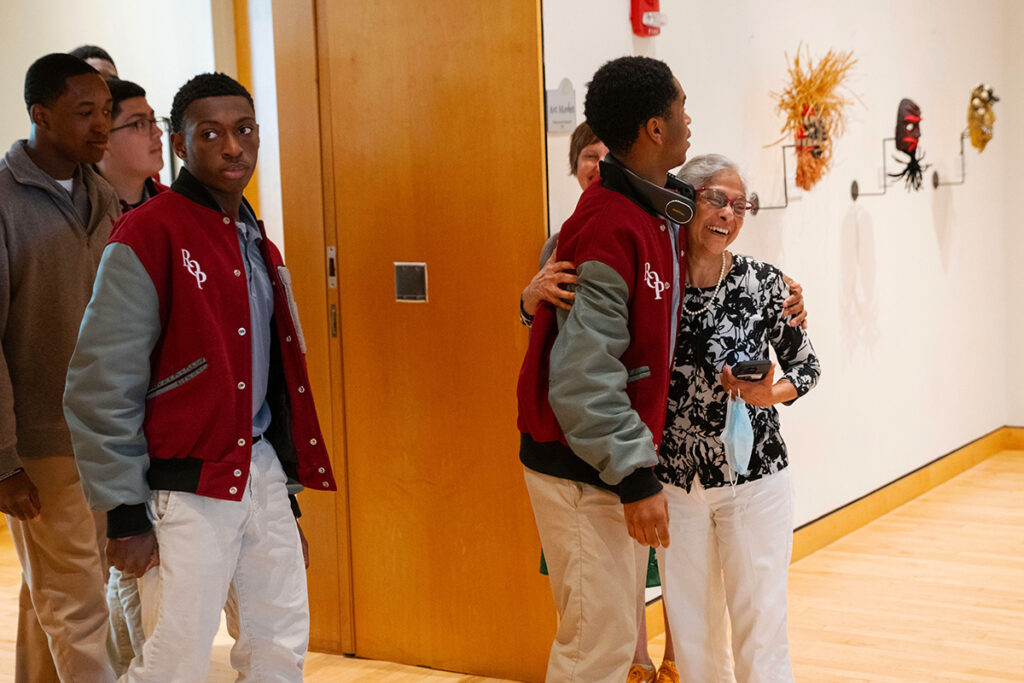
Each workshop exercise followed a three-step process: projection, creation, and reflection.
“Reflection was a very important part — that this is not something you do and then walk away,” Verma said. “Creating narratives is a deliberate act. Every mark that we make, every word that comes out of us comes from somewhere deep within. When you teach deliberation, then you allow somebody to understand what is driving their act of making.”
With the mask assignment, for example, students explored their identities and cultures. Each student planned out what he needed for his mask — from paint colors to other media such as feathers and glitter; pipe cleaners and beads were used on several masks to depict dreadlocks. They sat down with Verma to explain the personal meaning behind each color and item, and she assembled a unique kit for each of the 24 students based on their plans.
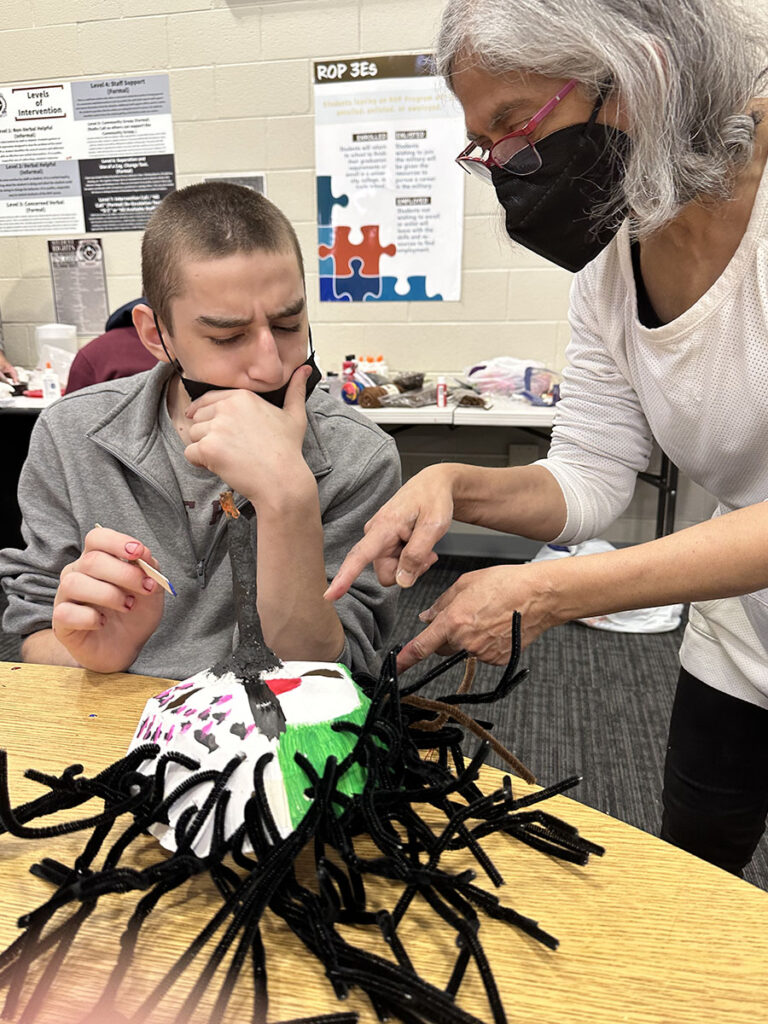
“The symbology they have infused in their work is so powerful,” Verma said of the masks on display.
“This is really about who they are,” she added. “The narratives that emerged were about what they stand for, how they are perceived, how they want to be seen by society, and how they believe society should respond to them.”
One student, a 16-year-old named Jalyn, arrived at DePaul Academy in May, just as the mask workshop was beginning. “At the time, I was homesick,” he said. “I was feeling depressed, I was feeling sad, I wanted to go home.”
Gesturing at his mask, which he colored black on one half and white on the other, he explained, “That’s what the black here represented — it represents me being in my dark stages. But then on the other side of the mask is the light, and that’s to represent that even in your darkest moments, there’s always light that can be found.”
Ike Shipman, regional director at Rite of Passage, the organization that operates DePaul Academy, said Verma’s workshops added something new and valuable to the program.
“We do trauma-informed therapies, we do behavior modification, we do education. Art is not a major focus in our program, but this project and collaboration further encouraged our students to use positive ways to express themselves,” he said. “We’re the beneficiaries of a lot of hard work from our amazing partner that came to us, referred by the Institute for Social Concerns, and came in with her whole heart, her whole presence, and a very open mind about how to communicate, collaborate, and cooperate with our students.”
Shipman noted that a majority of the 24 masks on display at the South Bend Museum of Art were made by students who have since graduated from DePaul Academy. “They are moving in new and amazing directions toward their futures,” he said, “but their futures were made brighter because of Neeta’s influence.”
Learn more about Audacious Narratives / Enduring Voices.
Related Stories
-
Social Concerns Summer Fellow returns to India for ongoing research
-
ReSearching for the Common Good: Solbee Kang
-
Bridging worlds through art—Kyla Walker joins institute as international poetry justice fellow
-
The power of encounter—RISE Hometown prepares incoming students for learning in service of justice at Notre Dame
-
The beauty of everyday democracy—Institute convenes scholars, practitioners, Luke Bretherton for democracy conference

